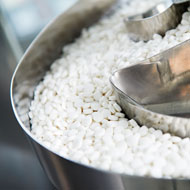Urgent action needed to tackle disposal of antibiotics - UN

Once consumed, most antibiotic drugs are excreted un-metabolised, along with resistant bacteria, through urine and faeces.
‘Careless’ disposal of antibiotics could lead to the emergence of ‘ferocious superbugs’ by driving antimicrobial resistance, according to United Nations (UN) experts.
Previous research has linked AMR to the misuse of antibiotics in humans and agriculture, but little attention has been given to the role of the environment and pollution.
This year’s Frontiers Report, released at the UN Environment Assembly in Nairobi, suggests the emergence and spread of AMR is being driven by antimicrobial compounds from homes, hospitals, pharmaceutical facilities and agricultural run-off being released into the environment; as well as direct contact between national bacterial communities and discharged resistant bacteria.
Once consumed, most antibiotic drugs are excreted un-metabolised, along with resistant bacteria, through urine and faeces, the report says.
Evidence also shows multi-drug resistant bacteria is prevalent in marine waters and sediments close to aquaculture, industry and municipal discharges.
“The warning here is truly frightening,” said Erik Solheim, chief of the UN Environment Programme. “We could be spurring the development of ferocious superbugs through ignorance and carelessness.”
Around 700,000 people die of resistant infections every year across the globe.
Mr Solheim continued: “This needs priority action right now, or else we run the risk of allowing resistance to occur through the back door, with potentially terrifying consequences.”
Solving the issue, according to the report, will involve tackling the use and disposal of antibiotics, as well as the release of antimicrobial drugs, contaminants and resistant bacteria into the environment.



 FIVP has shared a survey, inviting those working in independent practice to share their views on the CMA's proposed remedies.
FIVP has shared a survey, inviting those working in independent practice to share their views on the CMA's proposed remedies.